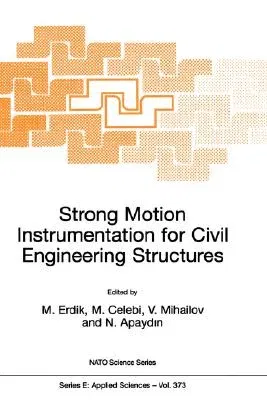Strong Motion Instrumentation for Civil Engineering Structures (2001)Hardcover - 2001, 31 May 2001

Qty
1
Turbo
Ships in 2 - 3 days
In Stock
Free Delivery
Cash on Delivery
15 Days
Free Returns
Secure Checkout

Part of Series
NATO Science Series E:
Part of Series
NATO Science Series. Series E, Applied Sciences
Part of Series
Astrophysics and Space Science Library
Part of Series
NATO Science Series: E:
Part of Series
NATO Science Series E: (Closed)
Print Length
605 pages
Language
English
Publisher
Springer
Date Published
31 May 2001
ISBN-10
0792369165
ISBN-13
9780792369165
Description
Product Details
Book Edition:
2001
Book Format:
Hardcover
Country of Origin:
US
Date Published:
31 May 2001
Dimensions:
23.39 x
15.6 x
3.33 cm
ISBN-10:
0792369165
ISBN-13:
9780792369165
Language:
English
Location:
Dordrecht
Pages:
605
Publisher:
Series:
Weight:
1038.73 gm